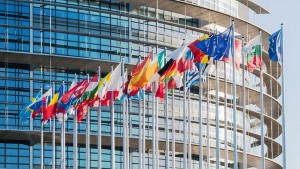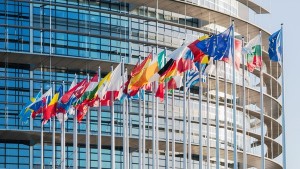- Divisions emerge over response to Panama Papers revelations
The Financial Times
Jim Brunsden
 EU member states are at odds over plans to fight aggressive corporate tax avoidance, highlighting the bloc’s difficulties in responding to public outrage over the Panama Papers tax revelations with swift action.
EU member states are at odds over plans to fight aggressive corporate tax avoidance, highlighting the bloc’s difficulties in responding to public outrage over the Panama Papers tax revelations with swift action.
EU ministers have promised to move fast to tackle tax abuse following the leak of more than 11m documents from Mossack Fonseca, a secretive law firm specialising in setting up offshore companies in tax havens.
At a meeting of finance ministers at the weekend, Finland’s Alexander Stubb described the revelations as a “game-changer”, while Michel Sapin, his French colleague, said it had been “intolerable for our citizens to see all these facts coming out day after day”.
But the gathering in the Netherlands also highlighted divisions over plans to force large companies to publicly disclose the taxes they pay and the profits they make in different countries. Wolfgang Schäuble , Germany’s finance minister, expressed deep reservations, warning that “sometimes there is a contradiction between transparency and efficiency”.
He added: “We have to be cautious about lining someone up to be pilloried publicly,” noting that Germany’s regional governments, which have an important say over tax policy, are firmly against the proposal.
Austria and Malta share the German concerns about the plan, while France, the UK and the European Parliament are among its backers. The split is a sign that, having secured rapid agreement this year on a number of measures to tackle tax avoidance, Brussels now is entering choppier political waters. Officials said that there were clear signs of progress, including support for the idea of an EU blacklist of tax havens, and agreement from all EU countries to take part in a “pilot project” to exchange information on companies’ real owners as a matter of course. But the EU is set to face tricky discussions on the methodology for identifying which countries should be named and shamed on the blacklist — an issue Luis de Guindos, Spain’s finance minister, described as “politically sensitive” Jeroen Dijsselbloem, the Dutch finance minister and head of the eurogroup of finance ministers from the single currency zone, is pushing for ministers to agree principles on the methodology as soon as next month.
In another possibly contentious move, Vera Jourova, the EU commissioner in charge of corporate transparency, is seeking to examine options for toughening disclosure rules for trusts. While ministers invited the commission to look into this, it remains a highly sensitive point for the UK, which intervened to water down previous legislation in this area. Ireland has also cautioned against rushing to a decision on a separate measure championed by the Netherlands to restrict companies’ ability to move profits internationally to cut down on tax. While the Netherlands wants agreement next month, Dublin says it is vitally important to consider the implications of the curbs.



